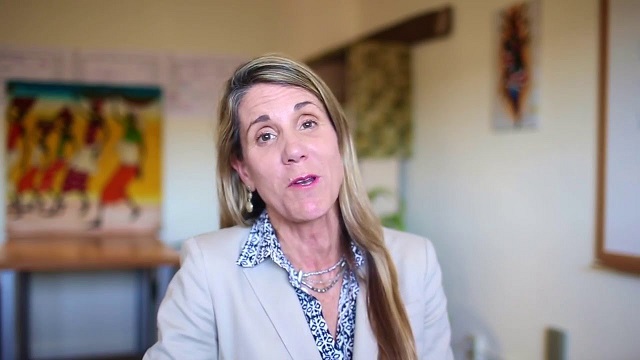
Kampala, Uganda | ISAAC KHISA | Dianne Calvi is the CEO of Village Enterprise with operations in Uganda and Kenya. She spoke to Isaac Khisa about the new innovations in fighting poverty in rural areas.
What is your management style as the CEO?
I am an informal manager who believes that an organization should be fairly flat and that the most important people in any organisation are those on the ground implementing the programme.
We therefore invest heavily in our staff and try to promote them from the bottom up.
What’s your mission?
Our mission is to end extreme poverty in rural Africa through entrepreneurship and innovation.
We are currently working in Uganda and Kenya but it is our intention to work across sub-Saharan Africa. We implement a group-based one- year Graduation programme, which includes : targeting the ultra-poor, seed capital grants in the form of a cash transfer, ongoing mentoring, and the formation of village-level savings groups . The participants form business groups, each with three individuals and each saving group consists of 10 business groups.
These participants are trained and provided with the first cash transfer of US$100 to start the businesses while still undergoing mentoring for a year, and thereafter receive their second transfer of US$50 as a follow-up.
How many business have you facilitated to grow so far?
We have started over 39,000 businesses in rural Kenya and Uganda over the last 30 years. Of these, 23,000 are in Uganda. Recently, we launched the Village Enterprise Development Impact Bond (DIB).
How does this new project work?
Village Enterprise was selected by USAID and UK’s DFID to implement the 1st DIB for poverty alleviation in Africa, a model that has never been implemented before.
The difference between a DIB and a traditional government contract is that the former is paid on measurable results rather than activities or outputs. Previously, a lot of money has been given without really knowing what the results are.
This new development impact bond is meant to ensure that at the end of the program, the program has had the impact that it intended to achieve, in our case, an increase in the income and assets of our business owners.
We are also raising capital from investors who can provide the working captial to get the programme off the ground.
After Village Enterprise delivers the program, an independent evaluator, IDInsights, evaluates and measures the results of the programme.
Based on the results achieved, we get paid by the outcome funders which we then use to pay back the investors. This allows private investors to invest in social programmes like poverty alleviation and also ensure that money is used wisely.
How far have you gone with sourcing US$5million fund for this Development Impact Bond?
We are about two-thirds in raising capital and quite confident that we shall raise the entire amount. We need to raise a total of US$2.4million and have already raised close to US$2million. We hope to close the fundraising for the DIB at the end of April. We are going to self-fund the cash transfer part of the programme, which comes to US$1million.
How has the performance so far of the Enterprise Village businesses?
Village Enterprise’s randomized control trial provided evidence that the program led to increases in consumption, assets, and income, as well as improvements in nutrition
. There were also positive impacts in subjective well-being such as trust, integration and women’s empowerment.
What are the criteria for selecting the groups to participate in this program?
We target the extreme poor in a participatory process where community members identify individuals perceived to be very poor. We then use a verification process to ensure that we are targeting the very poor. The participants then come together as a larger group and self-select whom they are going to work with in groups of three. Over the years, we have seen these groups continue to work together, increase their savings and diversify into other businesses.
How are these so called investors going to inject capital into these businesses?
The DIB is designed in a manner that investors will invest in the Impact Bond and then we will start the business working with the new business owners and the investors will be paid back based on average increase in income and net assets of the businesses started. We plan to start over 4,600 businesses.
What are some of the challenges you face, if any, as you implement your programme?
Some of challenges are climatic changes such as drought where we have had to teach people how to develop year long business plans so that they can think about risk mitigation and the cycles of drought and rainy seasons. Another challenge is that the areas that we work in are very remote and thus far from markets and formal financial institutions.
Where do you see Village Enterprise in the next five years?
We hope to successfully implement the Impact Bond in Kenya and Uganda and also expand and replicate our graduation program through strategic partnerships throughout Sub-Saharan Africa with the goal of transforming the lives of millions.
 The Independent Uganda: You get the Truth we Pay the Price
The Independent Uganda: You get the Truth we Pay the Price


